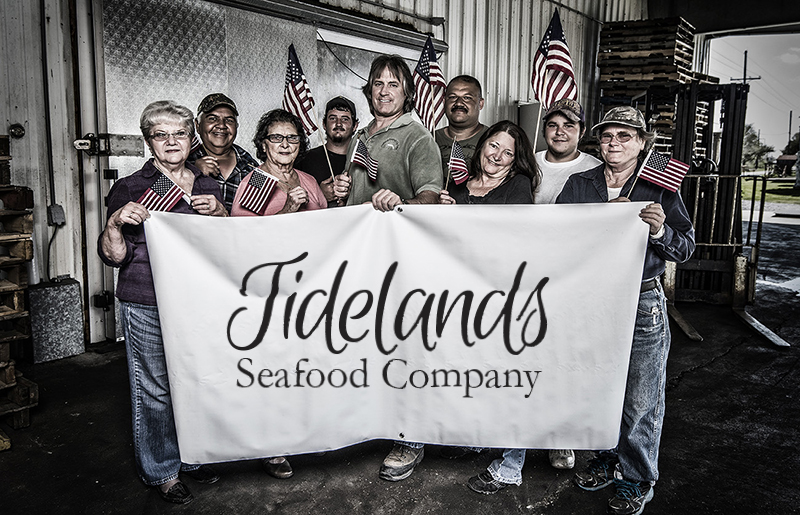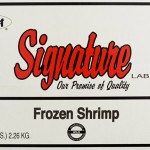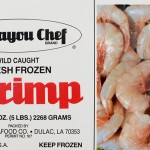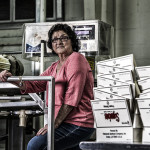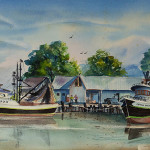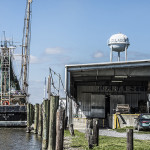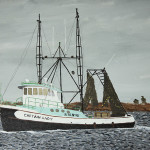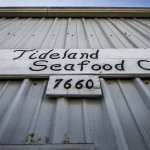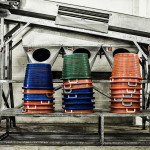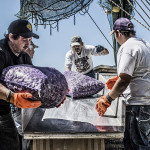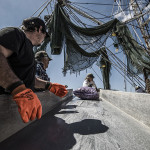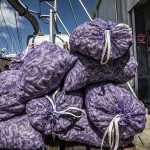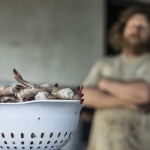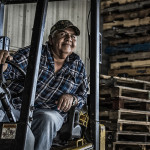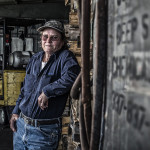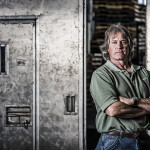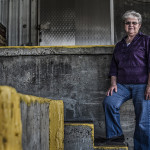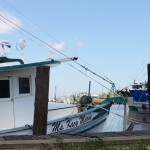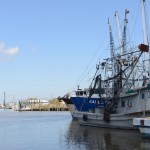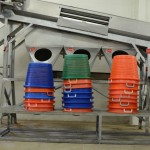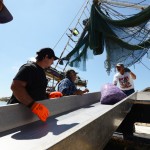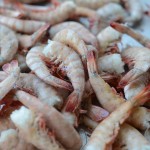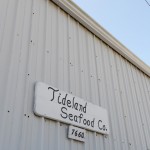
Wild American Shrimp Supplier
Contact
Tidelands Seafood Company, Inc.Alan “Andy” Gibson
(985) 563-4516
P.O. Box 99
Dulac, LA 70353
ajgibson@charter.net
Quick Facts
Year founded: 1953# of employees in peak season: 14+
Product type(s): Brown, white
headless, head-on, block frozen, IQF
Capacity (pounds per day): 10,000-12,000
Square footage of facilities: 11,000
Product brand names: Bayou Chef, Signature
The banks of Bayou Grand Caillou in Dulac, Louisiana, have been home to many shrimp processors over the last century. Although only a handful now remain, Tidelands Seafood Company, a fourth-generation family-owned company, is still operating and open today.
Alan “Andy” Gibson, 48, owner, grew up in an ever-changing industry that was started by his great grandfather, Aubin Buquet. Aubin began drying shrimp on platforms in the marshes of Terrebonne Parish in the early 1930s and was shipping his dried shrimp in wooden barrels to Japan until World War II.
With the loss of overseas customers, he embraced a more modern technology, and in 1938, he opened the Buquet Canning Co. and transitioned from drying shrimp to canning shrimp. This also brought the customer base back to the U.S.
Aubin passed away in in 1953, and his son, A.J., along with his brothers and sisters, continued the family canning business and also added oysters to their product line. That same year, A.J. started the Tidelands Seafood Company, which was the dockside unloading facility used to keep the boats closer to the fishing grounds since they used to travel all the way from Houma, La., to unload.
Tidelands Seafood was built next to the family store, and a supply house, fuel dock, and ice plant became the support system to the canning facility. The product was unloaded and trucked to the canning plant.
Andy’s father, Jesse “Jack” Gibson, married A.J.’s daughter, Judy, and he left the oil field to work in the family business managing the Tidelands’ dock and oversee the company fleet of vessels. In 1968, the newest company steel hull trawler was named “Capt. Andy” after the then 2-year-old Andy.
When the canneries began losing market share to the cheaper overseas imports, A.J. decided to shut down the cannery and continue in-the-sack oyster business that sold fresh product from the company vessels. Jack bought the Tidelands division from A.J. in 1975. He continued in the vessel management and fresh product operation, mainly buying off the boats and sending the small shrimp to peeling plants while heading the larger shrimp and sending the tails to be graded and packed.
At age nine, Alan worked punching the cards of the shrimp-heading crew as well as headed alongside them:
“At 9-years-old, I remember getting off the school bus in front of Tidelands and getting a milk crate to stand on so I could reach the heading table to head shrimp,” he says. “In a short while, I had moved up to punching the cards. Once the headers filled their bucket with heads, they would bring it to me to check and then dump it in a wheelbarrow to make sure it was heads only and not shrimp. Then I would punch a hole with a handheld hole punch into their card. One bucket of heads equaled one hole at $1.50 a bucket.”
Andy says that all changed on the night of Sept. 1, 1977, when a car wrecked and caused an explosion that destroyed Tidelands Seafood, as well as the store, supply house and fuel dock.
“I still vividly remember when my father woke me up and said we have to go because there was a fire at the dock,” Andy says. “When we got there, the store, supply house, the roof and walls of Tidelands were totally engulfed in flames. We jumped out of his truck and he told me to hug a nearby telephone pole and not let go no matter what. He ran into the burning building, pushed the big sliding doors open, and drove one truck out of the flames that was loaded with shrimp from the day before. He jumped out of the truck, yelled, ‘Do not move,’ and went back in and drove the second truck out.”
The building and store were a total loss, but by morning they were delivering the saved shrimp, and by afternoon, they were unloading boats by hand: “Within a few days, we were clearing the charred remains of Tidelands and made plans to rebuild,” Andy says. “Jack would often remind me, ‘If you get up early, work hard all day, you’ll be to tired to get into much trouble.’”
By 1978, Jack was packing his own 5-pound block headless in his new building under the old family label of Bayou Chef Brand, which A.J. had introduced into the market many years before.
As Andy got older, his responsibilities increased, and by 14, he worked as a deckhand on the family boats in the summer: “We would get out of school and have a week off, then get ready to be at work,” Andy says. “We would get boats ready for their next trip and then we were deckhands until the boats returned from the Texas trip, which kicks off the headless shrimp season. Then my dad would stay at the plant because he was needed there. Growing up at the plant was great fun because when the work was done, we fished at the dock, hung out with the crews of the fishing vessels — kind of camped out all summer.”
Although this line of work was what Alan knew, he did step away for five years to attend college in Florida. While in college in Pensacola, he worked at a shipyard for a short stint before moving back into commercial fishing, but this time as a commercial shark fisherman in Bayou La Batre, Ala.
Alan attended college during the winter semester and spent the summer and fall catching sharks: “Not many can say they paid for college catching sharks, but I did,” he says.
After graduating in 1991, and marrying his wife, Jennifer, they moved back to Louisiana to the family business. A few years later, Alan took over the duties of his father at Tidelands when Jack decided to spend more time with his cattle operation.
“We always had cattle, but Tidelands was first and cattle was after work and on the weekends,” Alan says. “I now have a small herd of dad’s handpicked cows, and at 81, my dad is still doing well with his herd.”
Alan and his mother, Judy, operated the business together until she retired in 2012: “I am very fortunate to have been able to work together with my mother and father the way we did,” he says. “We rode the highs and the lows of this business and there were many.”
The bulk of Tidelands’ clientele base is comprised of distributors, wholesalers, and a few chain restaurants throughout the country. Given Tidelands is not a processor with peeling equipment onsite, they specialize in custom packing of 5-pound block-frozen boxes of headless premium wild product under two brands: Bayou Chef and Signature.
Alan also is committed to being a voice for the industry. He currently serves as chairman of the Louisiana Seafood Promotion and Marketing Board, the Institute for Seafood Studies Advisory Board at Nichols State University, as well as the Terrebonne Coast Zone Board. While balancing his own business, it’s not uncommon for him to field multiple calls a day regarding industry issues at state, regional and national levels.
“I tried to learn from the guys that already served before me,” Alan says. “I tried to learn where the problems were, where the successes were, and where the failures were. One thing that has always stood out is we must communicate to succeed as an industry.”
When it comes to the day-to-day operation of Tidelands Seafood, Alan says company strengths include maintaining the integrity of family history through the brands they pack, and offering a reputable product of quality and consistency.
“We have some customers, fishermen, and employees still with us after 30-plus years,” he says. “That is hard to duplicate and we are proud of that.”



